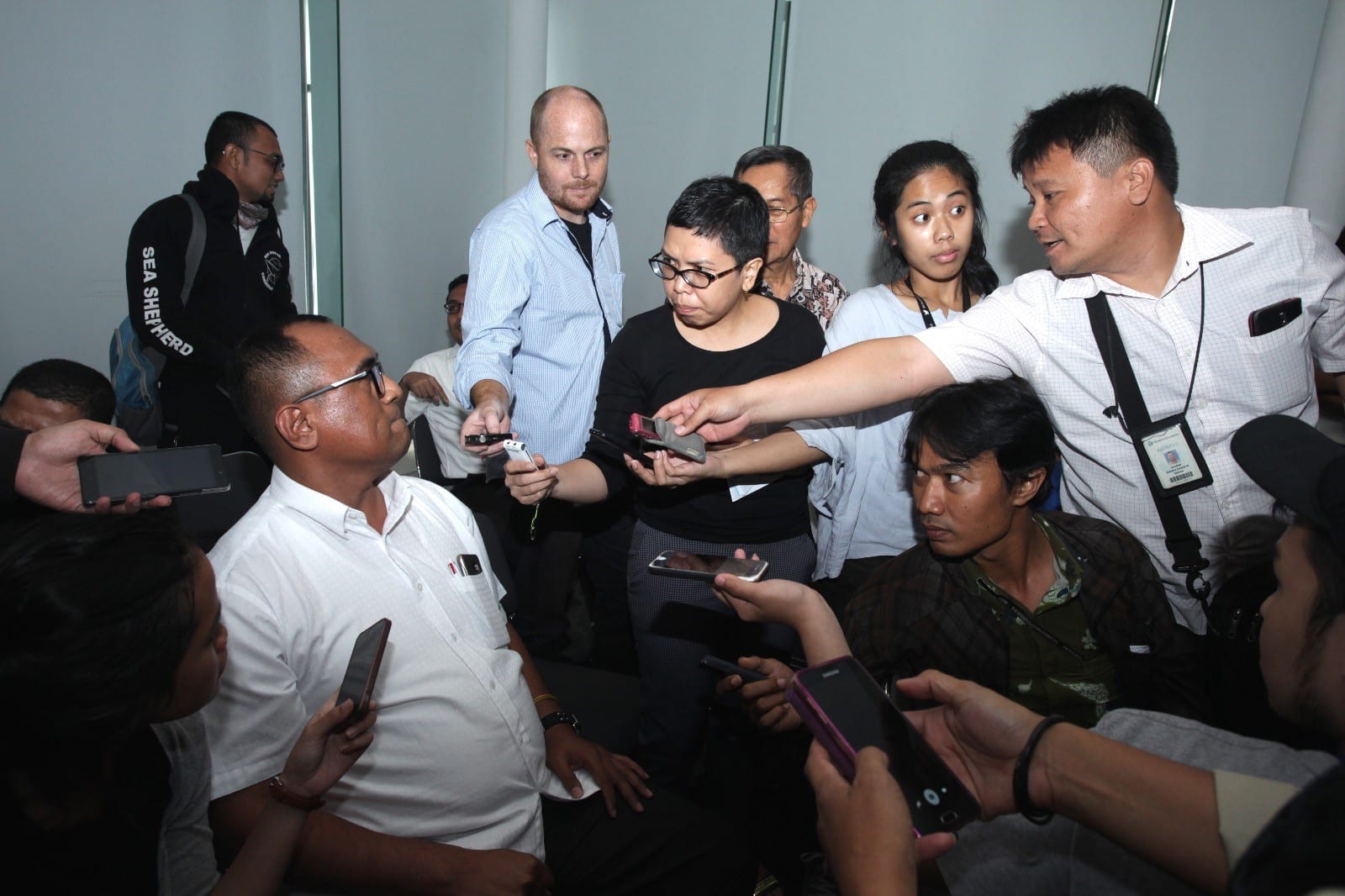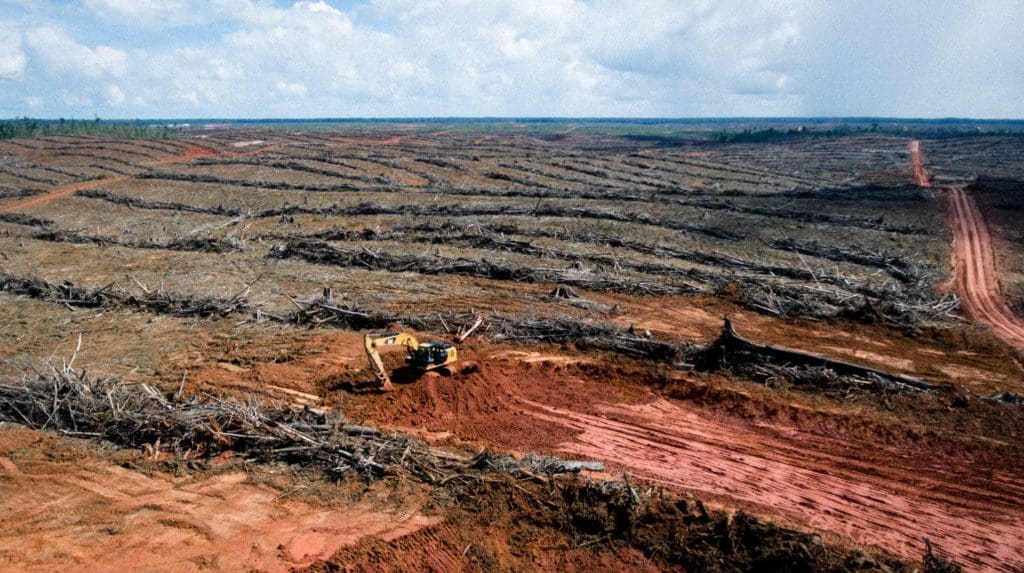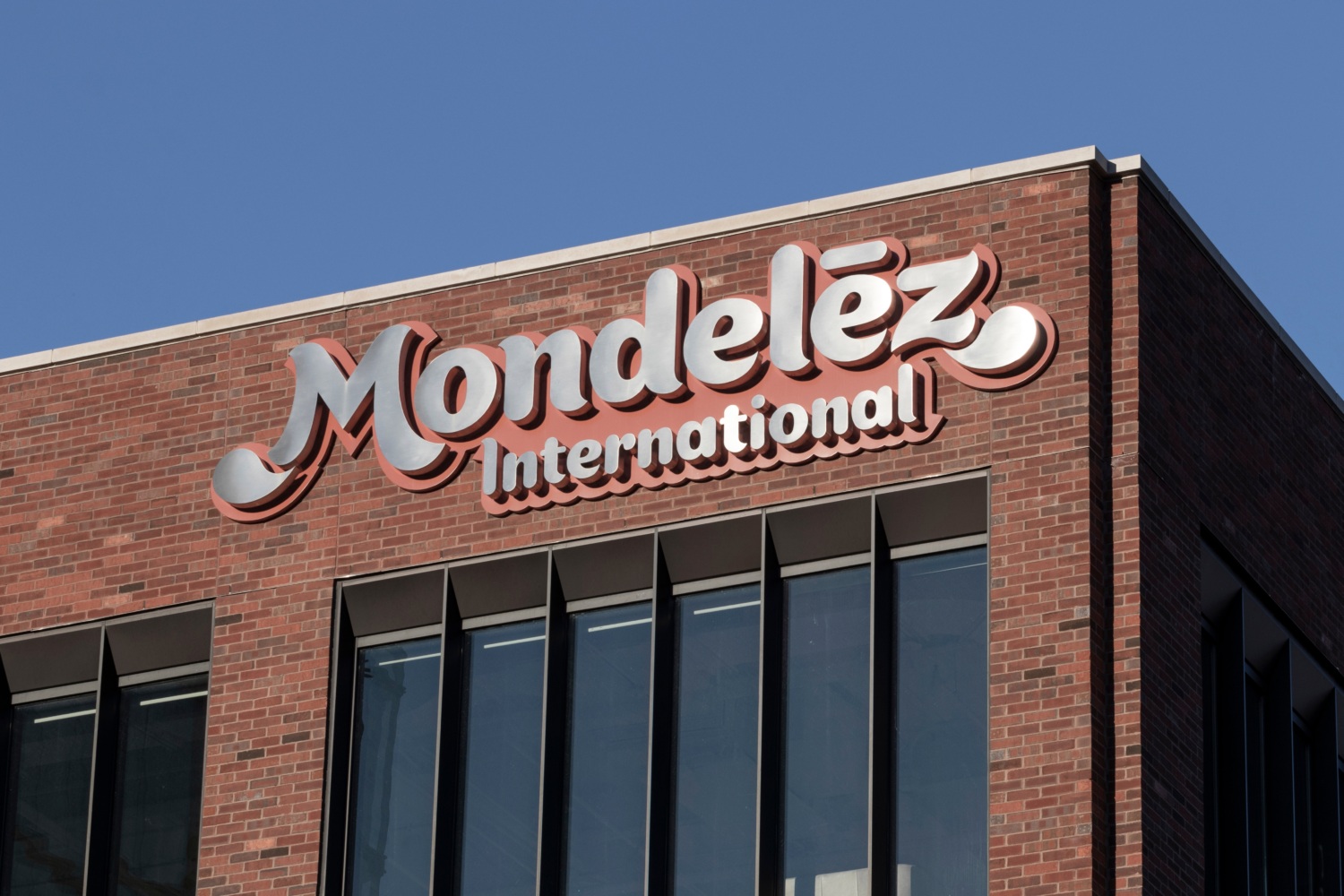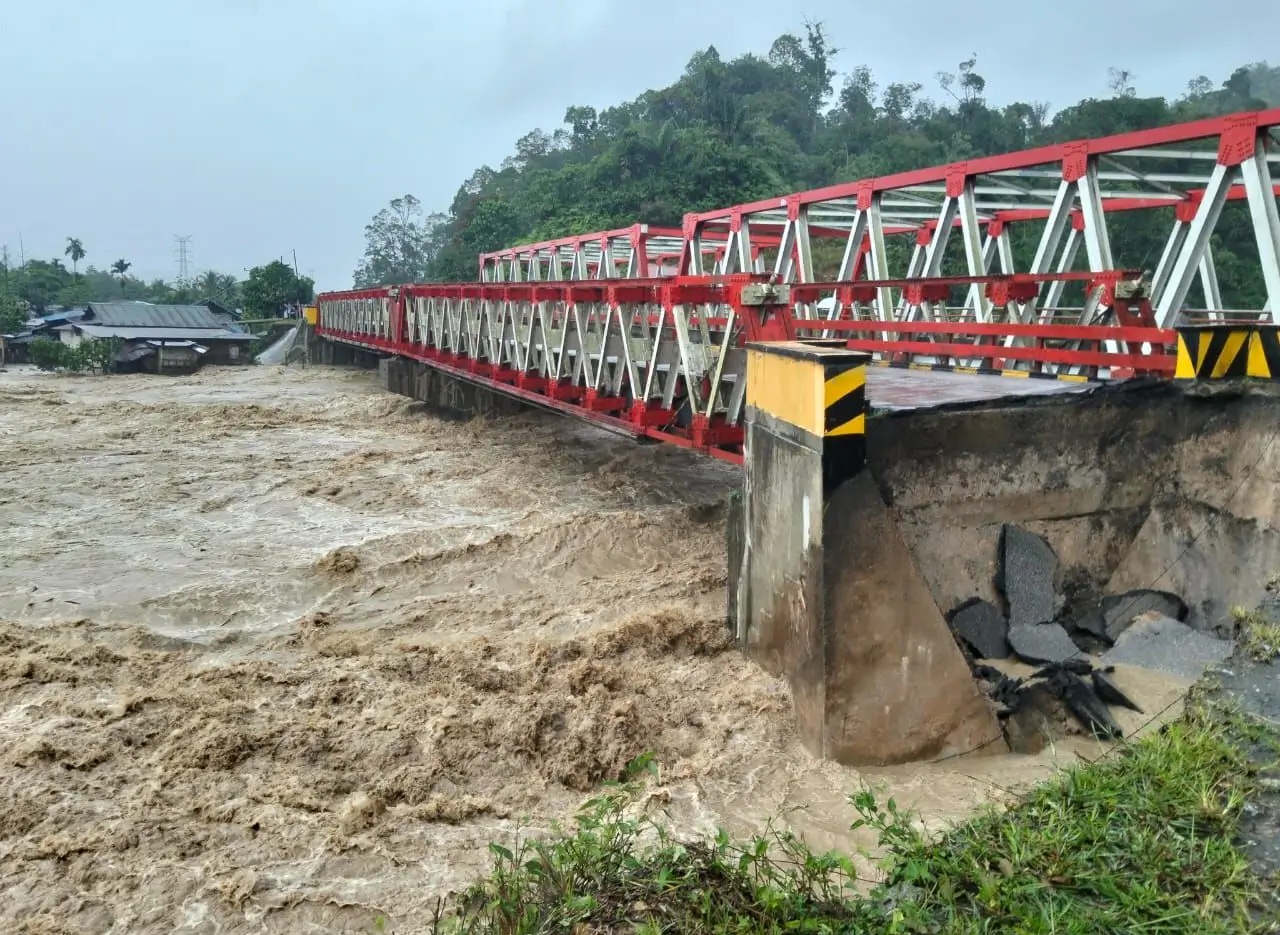
UPDATE: Indonesian Government Launches Official Investigation into Korindo for Burning, Deforestation
On Thursday, Mighty’s forest campaign launched in Jakarta with a bang, some high drama, and almost immediate impact.
Two dozen journalists showed up to our inaugural press conference, where, along with Papuan groups SKP-KAMe and Pusaka, we unveiled the “Burning Paradise” report. With stunning images, it documented how the Korean-Indonesian conglomerate Korindo had engaged in systematic illegal burning of rainforest in Papua, and how this one company destroyed 50,000 hectares of forest – an area the size of Seoul.
Three Korindo executives also showed up to the event, only to be dramatically confronted by the assembled media to respond to the charges (see photo, above). In response, Korindo representative Luwy admitted to the fires, as related in the September 1st edition of Kompas, one of the largest circulation Indonesian newspapers:
“This information is valuable for our internal discussion. About the fire, it is true, so what do we want to argue,” said Luwy, a Korindo’s field technical staff who came with his friend to the report release. – Kompas, September 2, 2016.
The investigation and press conference prompted media attention from The Guardian, Wall Street Journal, The Independent, Mongabay, Straits Times, Eco-Business, Vocativ, Quartz, Jakarta Globe, Jakarta Post, Deutsche Welle, and many others.
Following the press conference, the Indonesian government announced that it would follow up with its own investigation into Korindo’s deforestation and burning, including sending a field team to explore Korindo’s operations. This is part of a series of actions in which President Jokowi, Environment and Forestry Minister Siti Nurbaya, and Peatland Restoration Director Nazir Foead are significantly improving law enforcement of environmental infractions across Indonesia, hopefully sending an important message to the private sector that they need to do their part as well, like instituting a more transparent, joint action system that can prevent a recurrence of the Korindo debacle.

And the private sector is starting to respond…mostly. When we shared the evidence with them, Korindo’s primary customers Wilmar and Musim Mas discontinued their purchases from the company. Dozens more consumer companies have also announced that they no longer source from palm oil.
Significantly, however, despite repeated outreach, Burger King and Krispy Kreme (owned by JAB Holdings) have yet to respond – leading to a serious question about whether those companies are frying their doughnuts and French fries in Korindo’s palm oil (in contrast, McDonald’s is undertaking a serious inquiry into its supply chain to ensure no connection to Korindo). The giant ag trader Cargill stands out as the major agriculture trader that has also not responded (this may not be a coincidence given likely supply relationships between Cargill and the non-responsive consumer companies). At a minimum, Burger King and Krispy Kreme’s continued opacity and non-responsiveness shows that they are not living up to the transparency and commitment to deforestation-free supply chains that have become the industry standard.
This week, the Korean Federation for Environmental Movements and Mighty’s Southeast Asia Director Bustar Maitar and Campaigns Director Deborah Lapidus will be joining a tour of universities, governments, and media in Korea to discuss the company’s actions on its home turf. They should find a receptive audience: not only has Korea become a global leader in creating a green economy, South Korean President Park Geun-Hye also showed her support for conservation in Indonesia when she signed an agreement in May with Indonesian president Joko Widodo to help Indonesia stop forest fires….like the ones being caused by Korindo.


